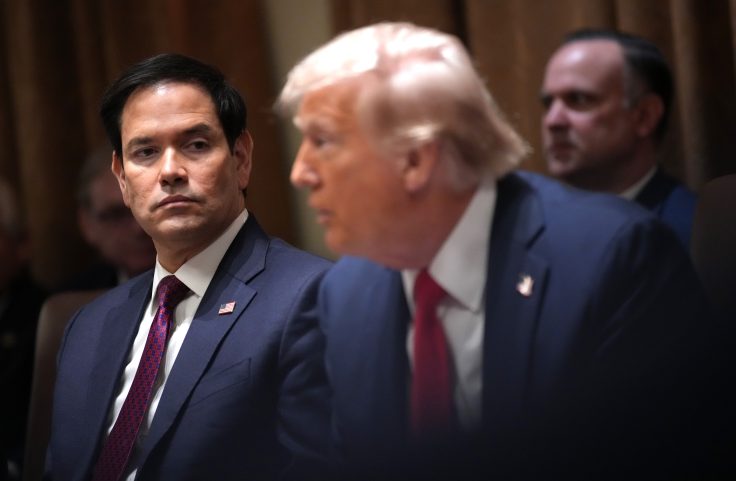The administration aims to drive “Iran’s illicit oil and petrochemical exports—including exports to China—to zero,” Secretary of State Marco Rubio said

The Trump administration announced wide-ranging sanctions Wednesday on a vast Iranian oil smuggling network that has generated “hundreds of millions of dollars in illicit funds for Iran’s destabilizing activities,” according to information provided by the State Department.
The sanctions target five United Arab Emirates-based companies, a Turkish petrochemical supplier, an Iranian cargo firm, and two ships known to ferry Tehran’s illicit petroleum products to foreign markets like that of China. The State Department views the sanctions, some of the furthest-reaching to date, as key to “driving Iran’s illicit oil and petrochemical exports—including exports to China—to zero,” Secretary of State Marco Rubio said in a statement.
The companies the State Department singled out in Wednesday’s sanctions have smuggled nearly $500 million in illicit petrochemical and petroleum products on Iran’s behalf, enabling the hardline regime to “advance its nuclear program and support its terrorist partners and proxies,” including Hamas, Hezbollah, and Yemen’s Houthi rebels, according to Foggy Bottom.
Wednesday’s measures come on the heels of at least 16 other Iran-centric sanctions packages since President Donald Trump took office in January. The administration intends to cripple Tehran’s international oil smuggling operations, which generated upwards of $200 billion during the Biden administration, while pursuing diplomatic talks with the Islamic Republic with the goal of rolling back Iran’s nuclear weapons program.
One of the freshly sanctioned companies, the UAE-based Solvent Organics FZE, has exported more than $300 million in “Iranian-origin petrochemical products” to countries across the globe, according to the State Department. A second, Alseerah Trading L.L.C., has ferried more than $150 million in similarly sanctioned goods to international markets.
Two others—the UAE-based Harold Trading L.L.C. and Shivnani Organics FZE—are responsible for a combined $34 million in Iranian petrochemical products, a portion of which originated from suppliers known to have laundered billions on Tehran’s behalf.
Another company listed, Turkey-based Kimpas, has moved $15 million in goods produced by several sanctioned Iranian petrochemical companies.
Other entities involved in the “purchase, acquisition, sale, transport, or marketing of petroleum or petroleum products from Iran” will also face sanctions as part of the latest package.
They include Keyhan Sanjesh Azma, an Iran-based cargo company that has helped load and inspect products produced by the U.S.-designated Triliance Petrochemical Co., a key cog in Tehran’s international smuggling machine. Keyhan Sanjesh Azma acted as a cargo surveyor for Iran in November 2022, “when the company documented and certified the loading of Iranian petroleum products onto the tanker Leonid,” and again in 2024, ” when it certified the loading of Iranian petroleum products onto several vessels from Tombak Port, Iran,” according to the State Department.
Additionally, Vroom Marine Ventures FZE, another UAE-based maritime company, will face sanctions for lending its vessels to the Iranian regime. Two of its tankers, the Eloise and Olia, have “transported multiple shipments of Iranian petroleum products” and will receive a blocked-property designation from the U.S. government.
“So long as Iran attempts to generate oil and petrochemical revenues to fund its destabilizing activities, and support its terrorist activities and proxies, the United States will take steps to hold both Iran and all its partners engaged in sanctions evasion accountable,” Rubio said when announcing the new measures.
The announcement comes just a day after the Treasury Department went after a network of companies helping Iran source ballistic missile components and propellant. Many of the chemicals the network has procured come from China, a major ally of Tehran that has backed its broadening nuclear program.
















